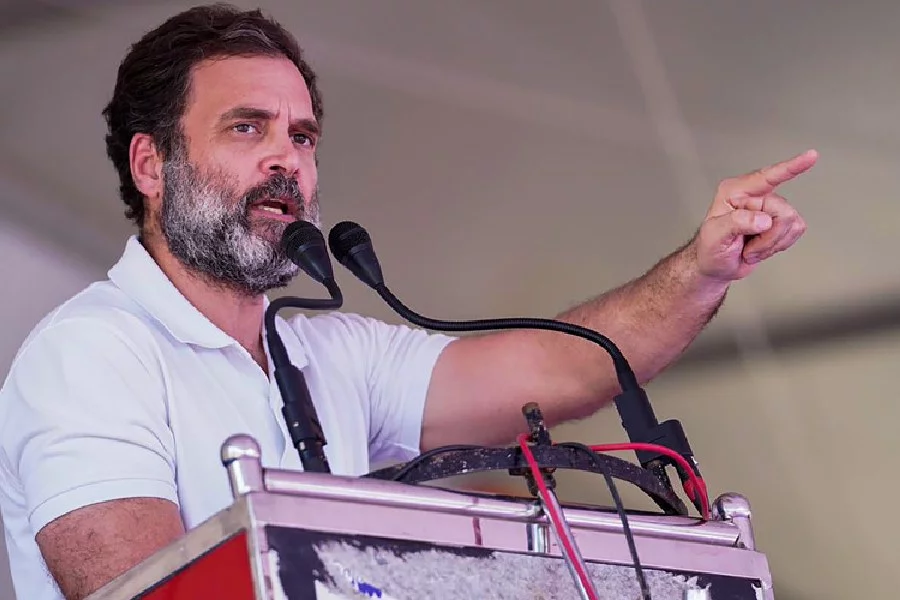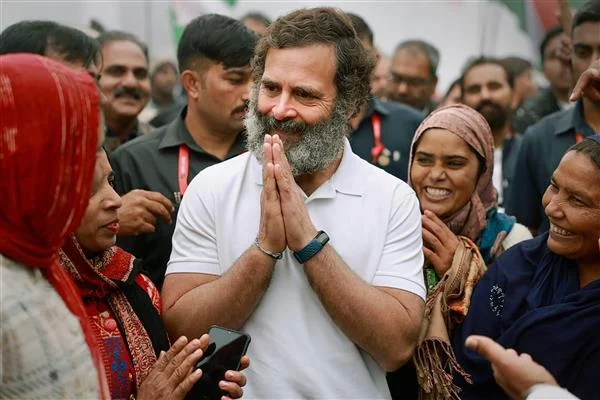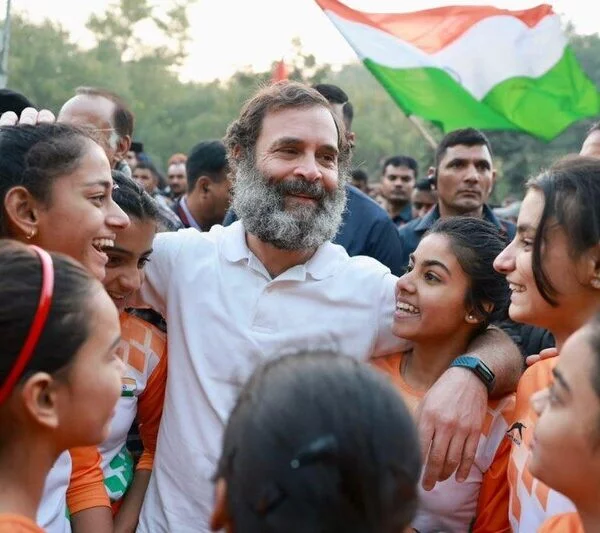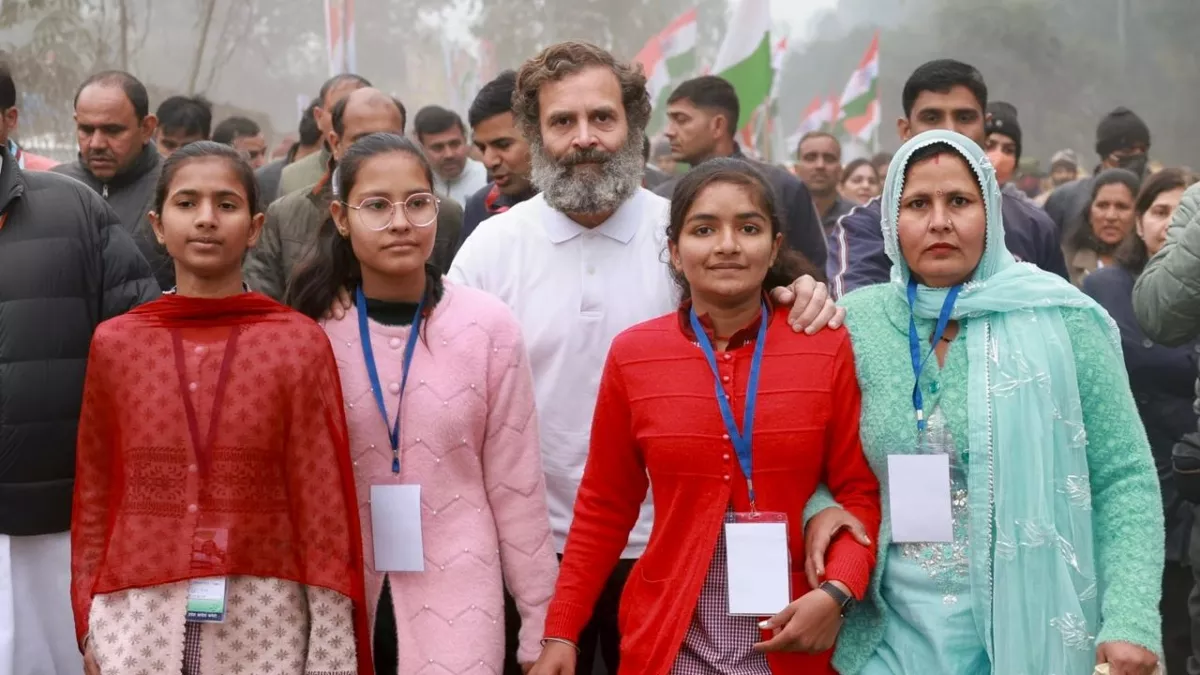
Shri Rahul Gandhi
Rahul Gandhi was born on 19 June 1970 to Rajiv Gandhi and Sonia Gandhi. He is currently holding the responsibility of the President of the Indian National Congress. Rahul Gandhi also holds other important positions of responsibility as the President of the Indian Youth Congress and the Indian National Students Union. He has also previously held the post of General Secretary of All India Congress Committee. Rahul Gandhi represents the Amethi parliamentary constituency of Uttar Pradesh as a Member of Parliament in the Lok Sabha since 2004. Rahul Gandhi became the Vice President of the Indian National Congress in January 2013, before becoming the frontrunner of his party on December 16, 2017. He has also previously been a member of the Parliamentary Standing Committee on Home Affairs and Human Resource Development and the Consultative Committee of the Ministry of Civil Aviation. He currently serves on the Parliamentary Standing Committee on Foreign Affairs. Rahul Gandhi is also a trustee of the Rajiv Gandhi Charitable Trust and the Rajiv Gandhi Foundation.
Early life
No major demonstrations were seen in the public sector in the initial days of Rahul Gandhi. Rahul Gandhi grew up under the watchful eye of his family, especially the impeccable care of his mother Sonia Gandhi. As a boy, Rahul Gandhi focused on completing his education. After the completion of his high school course, he went abroad to gain a vibrant educational experience. Amidst his pursuit of knowledge, there were many instances of security threats to him, especially after the inhuman assassination of his father Rajiv Gandhi, who was serving as the Prime Minister of India at the time. After completing his higher education, Rahul Gandhi started his professional career with Monitor Group, a management consulting firm in London. He later returned to India and founded a technology outsourcing firm called Backops Services Pvt Ltd in Mumbai, where he was one of the directors.


Education
Rahul Gandhi’s childhood years were spent in the quiet hills of the national capital Delhi and Dehradun. After studying at St. Columbus School in New Delhi, Rahul Gandhi attended The Doon School in Dehradun, Uttarakhand state from 1981 to 1983. Rahul Gandhi’s father, Rajiv Gandhi, then entered politics and became Prime Minister on December 31, 1984, following the assassination of Smt. Indira Gandhi. Due to the late Indira Gandhi’s family facing constant and multiple security threats, both Rahul Gandhi and his sister Priyanka Gandhi were later home schooled. Rahul Gandhi found himself pursuing his undergraduate studies at St. Stephen’s College, Delhi University, before going to Harvard University in the United States. In 1991, the country witnessed the tragic assassination of the then Prime Minister of India, Rajiv Gandhi, who lost his life at an election rally. Due to security threats after his father’s death, Rahul Gandhi transferred to Rollins College in Florida, where he earned a bachelor’s degree in 1994. He completed his M.Phil from Trinity College, Cambridge. 1995.
Political Journey
In March 2004, Rahul Gandhi announced his entry into Indian politics. Contesting the elections from Amethi, the constituency of his father late Rajiv Gandhi, Rahul Gandhi achieved a landslide victory where he won by a huge margin of over one lakh votes. Soon after, in his first interview to foreign media as a political candidate, Rahul Gandhi vocally condemned the divisive politics practiced by other parties, where he sought to become a binding force between all communities and parties and reduce tensions. Promised to commit itself to reducing. Arising from matters of caste and faith. During the reorganization of party secretariats on 24 September, Rahul Gandhi was appointed General Secretary of the All India Congress Committee. He also held the responsibilities of the Indian National Students Union and the Indian Youth Congress; Both saw rapid growth under his leadership. He soon found himself second in command to the Vice President of the Indian National Congress in January 2013. Throughout his political journey, Rahul Gandhi has been an ardent representative of the underprivileged and economically backward sections of the society. On May 11, 2011, in Bhatta Parsaul village in Uttar Pradesh state, he was arrested by the police for extending his support to protesting farmers who were claiming higher compensation due to the acquisition of their land by the authorities. For a highway project. In the 2014 elections, Rahul Gandhi won from Amethi for the third time. This victory, in its essence, represents the trust and confidence that the people of his constituency reposed in him. Rahul Gandhi showed tireless commitment to the efforts of the Indian National Congress for the betterment of the country and this led to him becoming the President of the Indian National Congress in 2017. Since then, the Indian National Congress has emerged under his leadership. A formidable force and voice of various stakeholders of the country. Rahul Gandhi’s vision and his strategy to fight the democratic battle with love and unity makes the Congress Party a true representative of a united India. Going forward, they aim to put these principles into action by creating systems that provide India’s citizens with the tools and opportunities they need to reach their full potential.
Rahul Gandhi as Congress President
On December 16, 2017, the responsibilities of the President of the Indian National Congress were handed over to Rahul Gandhi. Since then, he has proven to be a strong voice of opposition against the Bharatiya Janata Party-led National Democratic Alliance under the Prime Ministership. Of Narendra Modi. As the president of the largest opposition party, Rahul Gandhi has raised many issues where the focus is mainly on the betterment of the deprived sections of the society. He has also played an important role in keeping the ruling party in check by strongly criticizing various schemes and policies of the Modi-led NDA government. Some of the policies of the NDA government, against which Rahul Gandhi has been very vocal, are the hasty demonetization of 2016 which hampered Indian economic growth, mandatory enrollment of every citizen of India under the Aadhaar scheme, increasing Goods and Services Tax, Issues include inflation and fuel prices, divisive politics among the people of India, the failure of the Swachh Bharat scheme and the Rafale scam, among many others. The Congress, led by Rahul Gandhi, has strongly criticized the Modi-led NDA government for being pro-rich where they accept the demands of capitalists, industrialists and multinational corporations without paying attention to the hardships of farmers and peasants. Made the country poor.



